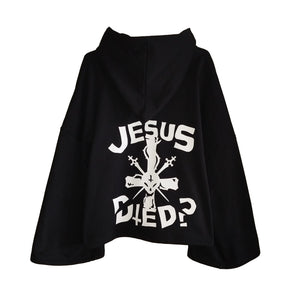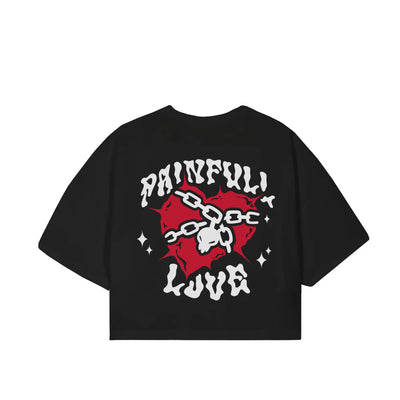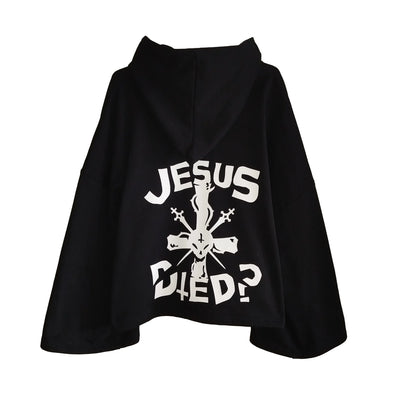Differences between fast fashion and designer streetwear: the impact on authenticity and exclusivity
Contents
Loose shirts, exclusive sneakers, logos that represent more than just clothing... Streetwear has ceased to be just a way of dressing and has become a cultural movement among young people. Are we witnessing a passing fad or a movement that shapes the identity of an entire generation? Increasingly, the balance is leaning toward the latter. Let's look at how streetwear brands are playing a key role in defining who we are and the values we embrace today.
1. In the world of fashion, not everything is equal.
Buying a generic t-shirt from a multinational chain isn't the same as getting a limited-edition sweatshirt from your favorite streetwear brand. Consumers are increasingly distinguishing between fast fashion and designer streetwear. Knowing the differences will help you understand why some brands' clothes have "something special" that others can never offer.
2. What is fast fashion and what is designer streetwear?
Fast fashion:
This is the model of large chains (such as Zara, H&M, or Primark) that produce huge volumes of clothing following the latest runway trends. These brands sell products at very low prices and constantly update their collections in stores. It's like the fast food of fashion: accessible and capable of quickly satisfying the appetite for new arrivals, but lacking durability and a unique "flavor."
Designer Streetwear (or Independent Designer):
Here we're talking about smaller brands founded by creatives who want to bring their personal vision to urban fashion. "Signature" implies that each garment is created with an artistic or conceptual intention, rather than replicating the current trend. These brands launch limited collections, pay attention to details, and use higher-quality materials, producing locally or in small quantities. This is the "special edition" versus mass production.
3. Authenticity: Who made your clothes and why?
Authenticity in fashion is feeling like what you're wearing has a real story and isn't just a mass-produced item.
Fast fashion:
Authenticity is conspicuous by its absence here. Who designs that basic T-shirt you buy in department stores? Typically, there isn't a recognized designer behind it, but rather an industrial process that produces millions of units without a story of its own. The garment becomes a clone of a global trend, without a creative context that makes it unique.
Designer Streetwear:
On the contrary, each piece tells a story. For example, when you buy a sweatshirt from our brand, Skull Hearts, or another emerging brand, you know who's behind the design. You can follow the designer on social media and learn about the inspiration that gave life to that piece. Furthermore, select materials and artisanal techniques are used to give it soul and durability. By supporting an entrepreneur, your purchase becomes more human and meaningful.
4. Exclusivity: Does everyone have it or almost no one?
Exclusivity makes you feel unique when you wear a garment.
Fast fashion:
This model sacrifices exclusivity by producing thousands or millions of units of the same design, available globally. It's very likely that when you buy something at a large chain, you'll find tens of thousands of people wearing the same thing.
Designer Streetwear:
Here, exclusivity is the calling card. By working with limited productions, brands release small runs—for example, only 50 sweatshirts of a design—ensuring that few people will own that item. This creates emotional and, sometimes, even material value, as these pieces can appreciate in value over time.
5. Why do authenticity and exclusivity matter?
You might think that, after all, a T-shirt is just a T-shirt. However, clothing goes beyond covering your body: it's communicating who you are and what matters to you.
With fast fashion, even if you have many options, it's difficult for any one garment to represent you in a unique way, as they are mass-produced generic products. Furthermore, this model encourages disposable consumption and has a negative impact on the environment.
On the other hand, opting for signature streetwear means each piece has a personal meaning. You remember where you bought it, what caught your eye, and often even exchange messages with the brand or designer. This allows you to build an authentic and conscious style, valuing each piece and generating a lower long-term impact.
6. At Skull Hearts we are clear: authenticity and exclusivity first
For us, at Skull Hearts, the difference is obvious. We distance ourselves from fast fashion and embrace a signature philosophy.
Our collections are limited: Each design is unique and carefully crafted, so you feel like you're wearing something exclusive and with a story behind it.
We reject the fast fashion model: We believe in offering unique and lasting pieces that genuinely represent your style, without sacrificing quality or creativity.
Commitment to authenticity: By choosing our products, you're not just buying a piece of clothing, you're supporting a project that champions local talent, conscious production, and a positive impact on streetwear culture.
While big-box retailers will continue to offer basics and momentary trends, the next time you're looking for something special for your wardrobe, consider signature streetwear. That spark of authenticity and exclusivity is what truly sets your style apart and tells your story.






